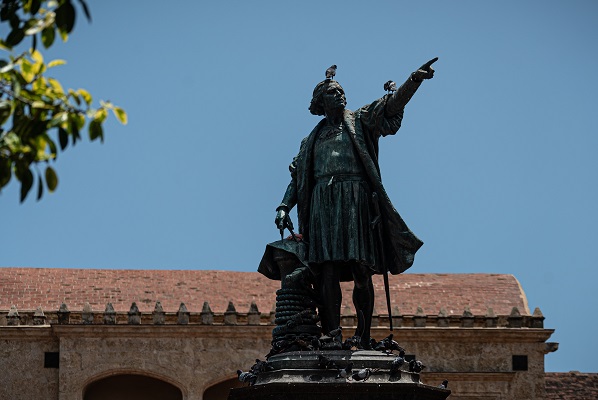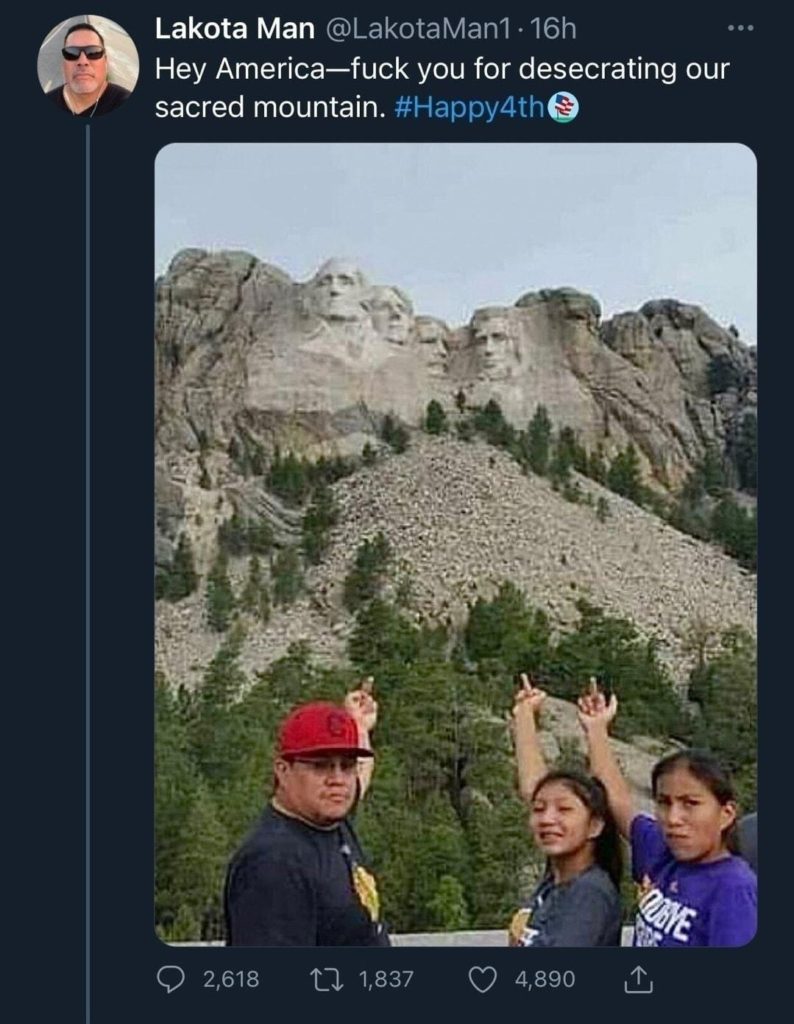The calendar says that today is when we celebrate the exploration chutzpah of some guy we call Columbus. Whatever his faults and they are many, he had the stones to sail off into a world of mystery to answer questions Europe had long pondered. What the hell is over there?
Related: Exposing The “Indigenous People” in North America Lie … (Again!)
It resulted in the discovery of two continents and a new source of slaves.
Oppressing locals has been a historical habit of humans of all colors, races, religions, etc., so that’s not surprising. Those “enslaved people” probably had slaves, some of whom – depending on the culture – were sacrificed to local gods. People who did not originate there much the way the Spanish-speaking world of Central and South America did not speak Spanish until they were conquered and forced to speak it.
None of this matters if you are progressive or carry their water. To them, this Monday in October is an excuse to grind an axe in service to a larger political agenda. It is not Columbus Day; it is ‘Indigenous People’s Day.’ But as we’ve pointed out annually, there were no indigenous people here, just the last people to conquer or occupy lands previously empty or occupied by those they killed or drove out.
I’ve shared a small mountain of content on this here, but one of my favorite examples centers on a social media post by a Lakota Indian flipping off Mount Rushmore.
The Black Hills has only had human occupants for about 10,000 years. Since then, several peoples have occupied or conquered the area to call it their own. Before the Europeans took it over, the last tribe to do this was the Lakota Sioux (Lakota), a few of whom are offended that their ancestors were “conquered” or displaced.
Lakota man is not happy, but then, neither I suspect, were “the Cheyenne, Crow, Kiowa, and Pawnee,”
“…when the Lakota arrived in the 18th century, they drove out the other tribes and claimed the land for themselves. The lands soon became sacred to the Lakota Sioux, who called them Paha Sapa, which means “hills that are black.”
The Lakota drove them out, probably through barter, threats, shows of force, or violence. They conquered the land, taking it from the “indigenous people” who occupied it before them, just as those people had done to whoever came before they did.
Those lands and that mountain (Mount Rushmore) were likely unknown to the Lakota until the beginning of the American Revolution. Not sacred at all until much of the eastern seaboard was occupied by increasingly disgruntled Europeans.
That must mean that I can declare New England and as much of the Eastern United States as I feel inclined, sacred European Land. It had been occupied, systematically tamed, and culturally converted (through barter, threats, shows of force, or violence) beginning 150 years (more or less) before the Lakota stumbled into the Black Hills of South Dakota.
It drives the point home, yes? The mountain was there for a very long time, surrounded by other tribes or people (for about 10,000 years) before the Lakota killed or ran off the most recent “occupants” and decided the mountain was theirs and that it was sacred. About 200 years later, maybe less, the US government did the same thing to your ancestors and turned it into a national monument.
Related: Pilgrims, Indigenous Peoples, And Progressive Reprogramming on Thanksgiving
The only thing sacred is the perception that your claim was better than anyone else’s and the progressive desire to use that for political purposes.
Do you honestly believe the Left gives a damn about your past claims, sacred or otherwise?
You’d be a poor student of history if you did.

